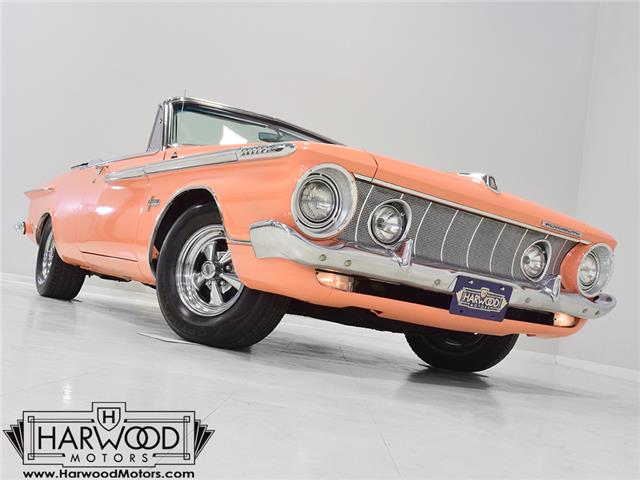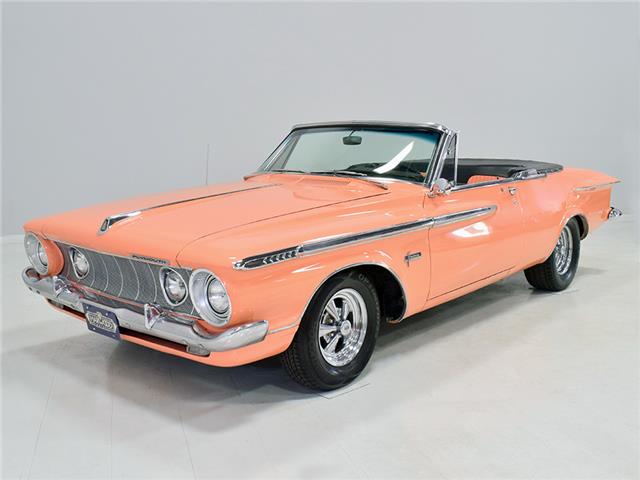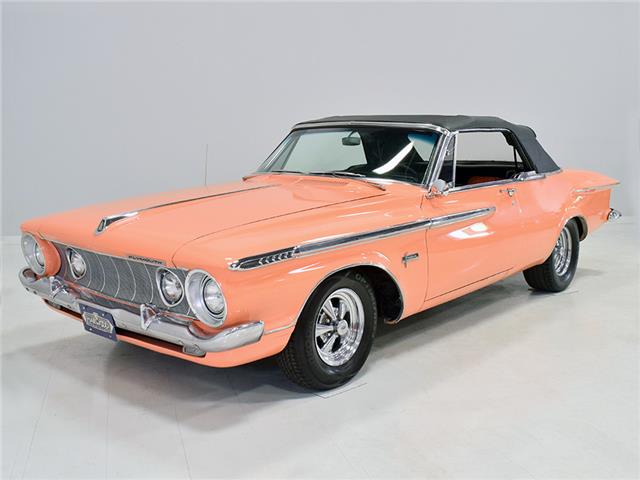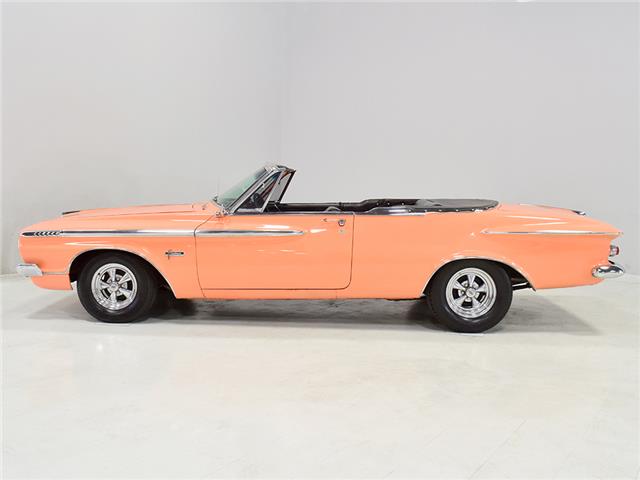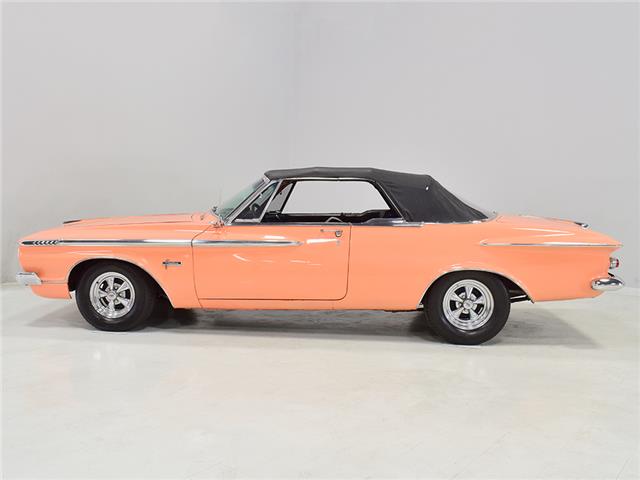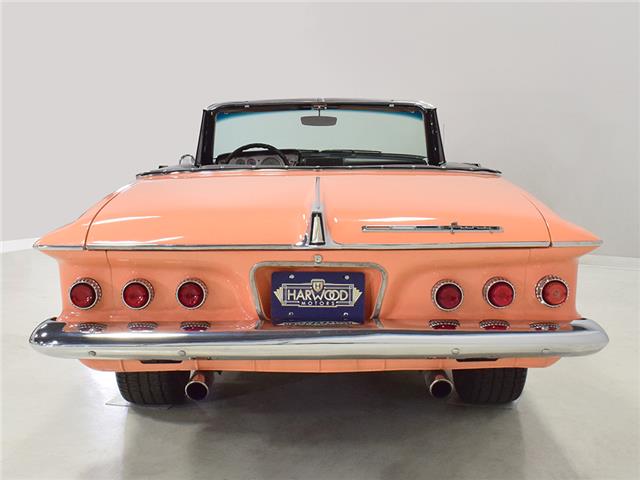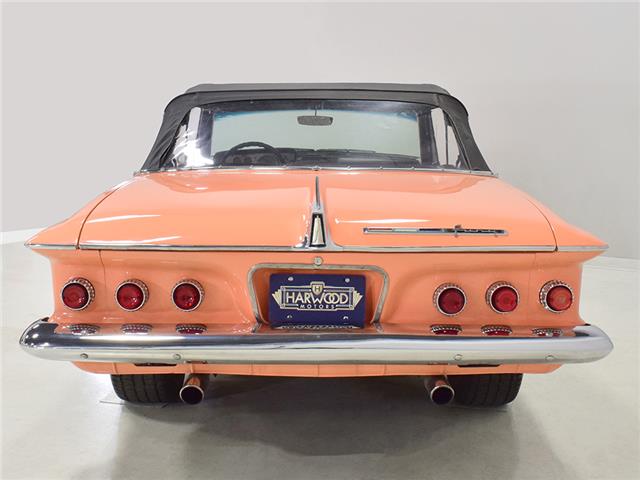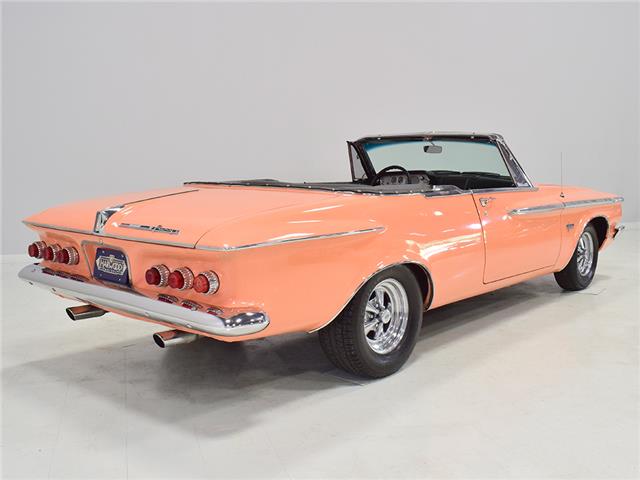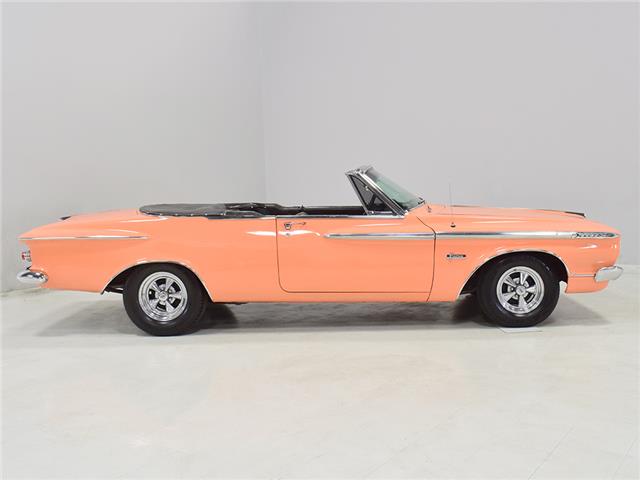1962 Plymouth Fury Convertible 15963 Miles Persian Pink 318 cubic inch V8 3-sp
- Location: Local pick-up only
- Condition: Used
- Make: Plymouth
- Model: Fury
- Type: --
- Trim: --
- Year: 1962
- Mileage: 15963
- VIN: 3321110046
- Color: Persian Pink
- Engine size: 318 cubic inch V8
- Power options: --
- Fuel: Gasoline
- Transmission: Automatic
- Drive type: --
- Interior color: Black
- Options: --
- Vehicle Title: N/A
1962 Plymouth Fury -- Description
Please don’t take this personally, but most car guys won’t have the imagination or vision to see this 1962 Plymouth Fury for what it is and what it could be. Black Camaros, red GTOs, blue Chevelles, those are always safe choices and your buddies won’t say anything about it. But if you’re like me and don’t like to be just like everyone else and prefer to color outside the lines a bit, then perhaps this cool convertible is for you.... Our experience with it suggests that it represents a lot of car for not a lot of cash and the color, while not for everyone, makes it stand out anywhere it goes. I mean EVERYONE seems to love it. It’s OK if you don’t think it’s right for you, but if you are the sort of person who doesn’t care about shows and trophies and what everyone else thinks, you’ll quickly discover a car that’s fun to drive, easy to maintain, inexpensive to own, and attracts far more attention at shows than the garden-variety stuff. It’s funky, it’s fun, and we are 100% in love with it! I don’t know when it was painted or by whom, but it was a long time ago and it looks pretty authentic. Glancing around the Chrysler color charts, you’ll see that it’s probably close to 1959 Chrysler Persian Pink—it’s not pink, it’s not orange, and it’s not really even salmon, it’s somewhere in-between and it works. The point is that it’s not a show car but that the work was extremely well done, as we can find no traces of whatever this car was originally (the fender tag says code W Ermine White) so it seems like it has always looked like this. Thanks to living most of its life in Arizona, there’s good, straight bodywork underneath with no signs of incompetent workmanship or critical rust repairs, and the gaps are quite good so it hasn’t been wrecked. The multiple angular protrusions that were part of Chrysler’s design language in the early ‘60s work quite well on the sporty Fury, helping to give it a unique look that people seem to love. There are certainly signs of use all over the place, but a big part of this car’s appeal is the ability to simply get in, enjoy, and not worry about it. Everyone seems to think they want a perfect car that people are afraid to touch, but in practice, you’ll find that it’s incredibly liberating to own and drive a cool car that doesn’t cause you any stress at all. That’s why cars like this are my favorites—high style, low stress. There’s plenty of stainless and chrome trim, all of which is in very good condition. We believe the bumpers have been refinished at some point, they’re just too nice to be original, but the stainless trim along the flanks as well as the large scooped grille up front are surely factory-installed and in good shape. Big headlight bezels give the illusion that the headlights and hi-beams are different sizes, but that’s part of what makes it so cool—nothing else looks like an early ‘60s Mopar! There’s some crazing on the emblems, front and rear, but all the badges, lenses, and other details are in great shape and it’s worth mentioning that all the lights are fully operational, including all six taillights. The interior has obviously been redone as well, but it works rather well with the bodywork. I don’t know if the paint was matched to the vinyl or vice-versa, but it’s just about exact. That means someone cared about getting it right. Again, it was done a while ago, so it’s not perfect, but there are no splits or tears and the support structure underneath is firm enough for all day comfort. Newer carpets are in excellent shape and replicate the original stuff and custom door panels were created to look original but match the new color scheme. The instrument panel is original, and all the gauges are fully operational, including the giant speedometer—only the clock is offline. And yes, it does have a pushbutton Torqueflite, which not only endears it to onlookers but pretty much makes it theft-proof—good luck figuring out how to put it in gear if you’re not already familiar! The original AM radio is still in the dash, but you won’t need it, since there’s a modern AM/FM/iPod/USB head unit cleverly hidden in the glove box and pumping through the original center-mounted speaker. Sounds good, looks stock. If there’s anything to complain about, it’s that the windows rattle a bit when they’re down (and that’s the ONLY thing that rattles on the whole car). There’s also a brand-new black vinyl power convertible top, and the entire mechanism and motor has been overhauled, so it works properly and stows easily under a matching black boot. There’s also a cavernous trunk with black carpets, what appear to be original cardboard side panels, and a full-sized spare tire with original jack assembly. The powerplant is a recently rebuilt 318 cubic inch V8, which was the standard engine in the Fury. This is from a later model, but it doesn’t really matter on this car, does it? It runs superbly, starting easily, idling smoothly, and just going about its business without any fussiness whatsoever. The Edelbrock carburetor and intake manifold certainly help with a little extra horsepower, as does the dual exhaust system, which uses stock-style mufflers to keep things quiet when you’re cruising. Bright red engine enamel, chrome valve covers and a matching air cleaner dress things up a bit, and you’ll be pleased to see both power steering and power brakes, making this a car anyone can drive and enjoy. The wiring is recent, and most of the hardware is 100% stock, so it’s durable, reliable, and economical to maintain. Knowing a bit about Chrysler products of this era, they’re some of the most durable, well-built cars you can own and this Fury certainly seems to deliver. It’s just great to drive, always ready to go, and as I mentioned, asks for little in return. Underneath, the original TorqueFlite 3-speed automatic transmission shifts cleanly and the pushbutton setup works 100% correctly with no issues—even the back-up lights work! Out back there are relaxed 3.23 gears so it’s good on the highway and pulls down something around 20 MPG if you’re not hammering it. The front suspension and steering have been recently rebuilt with new ball joints, tie rods, radius arms, and fresh shocks, so it tracks straight and rides smoothly. The torsion bar suspension makes this feel more like a luxury car but handling is crisp enough to be entertaining on the road. Air shocks in back can keep things level, although we lowered the nose a bit to give it a bit of attitude. The exhaust system is recent and the floors are in good shape, although it has obviously not been restored. However, you can see that it spent its life someplace other than in the rust belt. It’s sitting on 14-inch Cragar mags, which have a cool old-school look and a set of 215/75/14 blackwall radials to fill the fenders. If you’ve read this far, then you’re the kind of person who is visionary enough to see past what everyone else likes. We’ve sold more than 600 cars at Harwood Motors, and I can count on two hands those I have liked and enjoyed more than this cool Plymouth Fury. It’s also relatively rare, with only 1516 being built in 1962. And if you’re truly visionary, think of this car sitting on a set of 17-inch Torque Thrusts with gray centers and some appropriately hunky rubber to fill the fenders. A 21st century spin on an unusual classic will make this ragtop stand out anywhere without giving its owner any fits. Low stress, high style. It’s the only way to fly!
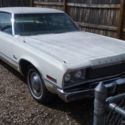 1974 Plymouth Fury III 3 360 cubic inch low mileage survivor
1974 Plymouth Fury III 3 360 cubic inch low mileage survivor
Mileage: 74,000
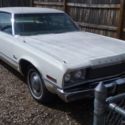 1974 Plymouth Fury III 3 360 cubic inch low mileage survivor NO RESERVE
1974 Plymouth Fury III 3 360 cubic inch low mileage survivor NO RESERVE
Mileage: 74,000
 1969 Plymouth Fury III 2 Door 383 Cubic inch engine and all Original Sheet Metal
1969 Plymouth Fury III 2 Door 383 Cubic inch engine and all Original Sheet Metal
Mileage: 64,973
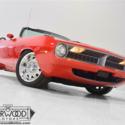 1970 Plymouth Cuda Convertible 346 Miles Rallye Red 383 cubic inch V8 3-speed
1970 Plymouth Cuda Convertible 346 Miles Rallye Red 383 cubic inch V8 3-speed
Mileage: 346
 1960 Plymouth Fury 83377 Miles Pink 0 Automatic
1960 Plymouth Fury 83377 Miles Pink 0 Automatic
Mileage: 83377
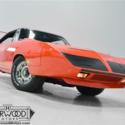 1970 Plymouth Road Runner Superbird 28223 Miles Tor-Red 440 cubic inch V8 3-sp
1970 Plymouth Road Runner Superbird 28223 Miles Tor-Red 440 cubic inch V8 3-sp
Mileage: 28223
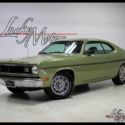 1970 Plymouth Duster 78700 Miles Green Coupe 318 Cubic Inch Manual
1970 Plymouth Duster 78700 Miles Green Coupe 318 Cubic Inch Manual
Mileage: 78,700
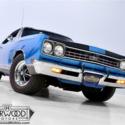 1969 Plymouth GTX 22884 Miles Blue Hardtop 426 cubic inch HEMI V8 Manual
1969 Plymouth GTX 22884 Miles Blue Hardtop 426 cubic inch HEMI V8 Manual
Mileage: 22884
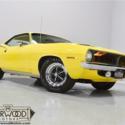 1970 Plymouth Cuda 383 29091 Miles Top Banana Yellow Coupe 383 cubic inch V8 Aut
1970 Plymouth Cuda 383 29091 Miles Top Banana Yellow Coupe 383 cubic inch V8 Aut
Mileage: 29091
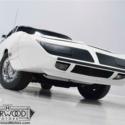 1970 Plymouth Superbird 500 Miles Alpine White Hardtop 440 cubic inch V8 Automa
1970 Plymouth Superbird 500 Miles Alpine White Hardtop 440 cubic inch V8 Automa
Mileage: 500
